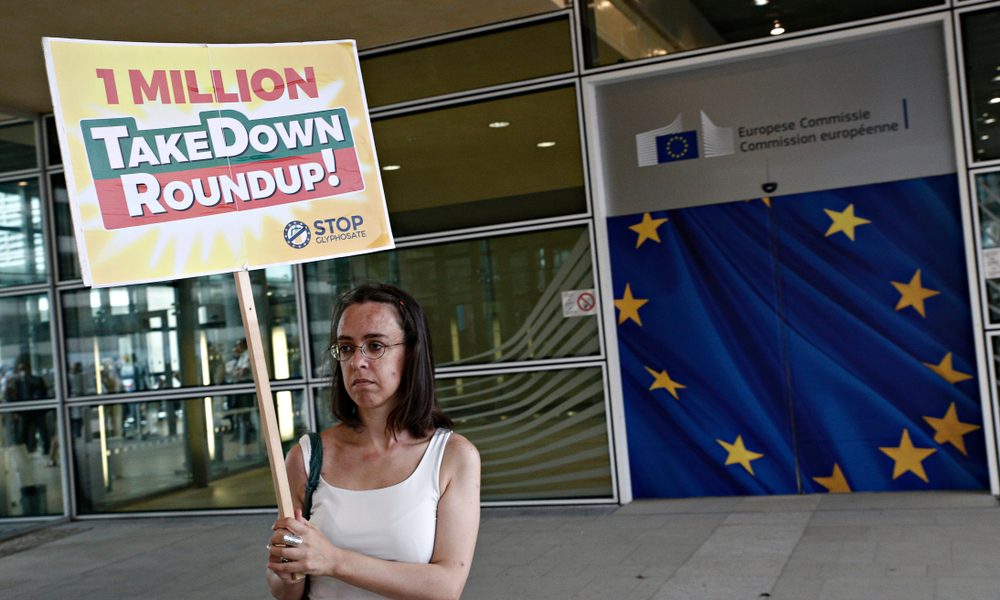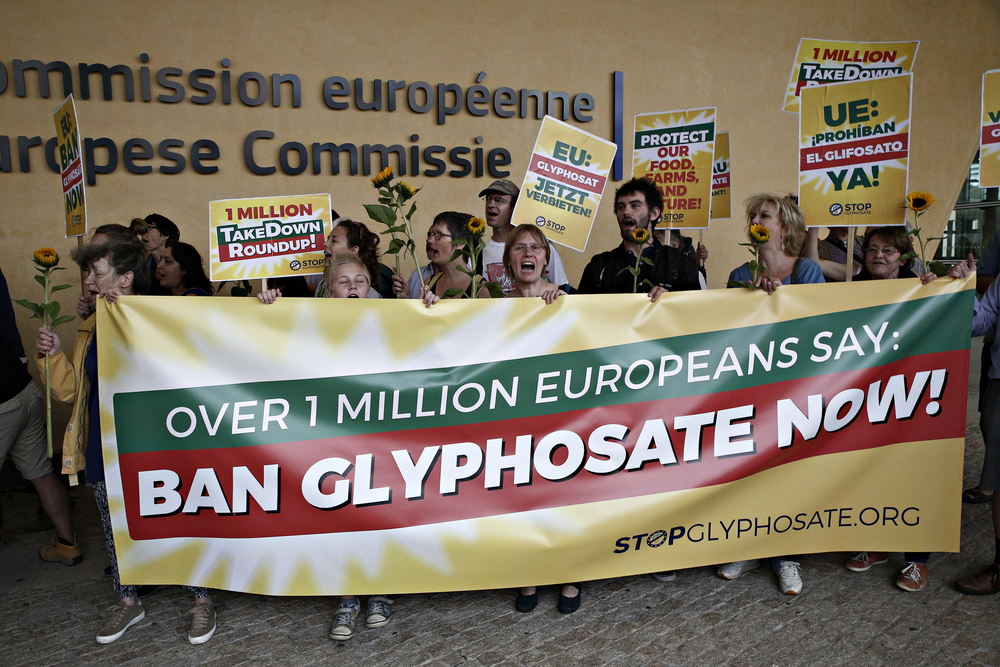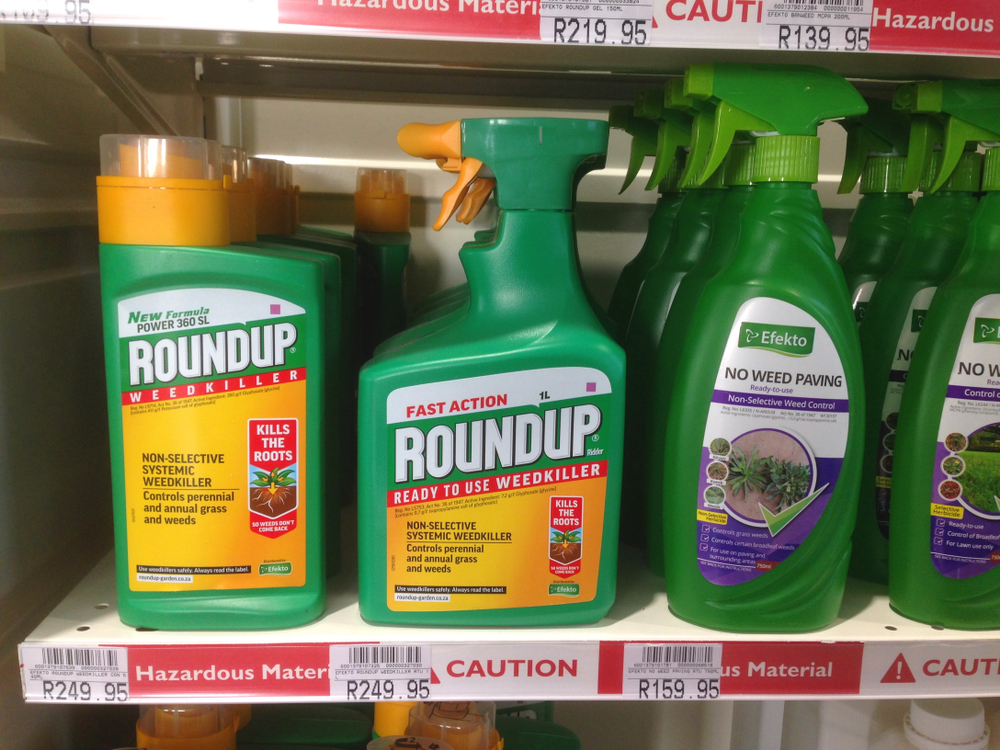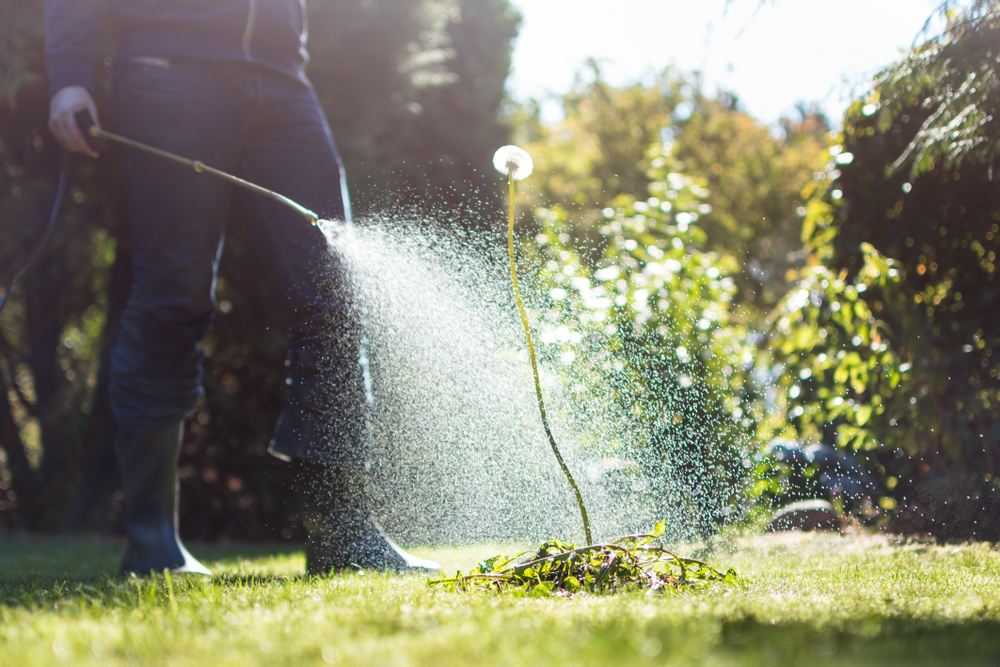
European Union Votes To Renew Its License On Glyphosate

When it comes to agriculture and plantation, many farmers around the world are torn between adapting technology to procreate fine vegetation or just stick to old, traditional, and organic way. Most farmers, especially those working for food manufacturers and companies prefer to use chemicals like pesticides, hormones, and herbicides in order to propagate and fasten the growth of crops and meet the demand.
There are other local farmers who want to go with the organic way (even if it takes them months and years to grow) in order to prevent health risks, those chemicals may impose on our health and well-being. This remains a heated argument in the world in terms of nutrition, health, and environmental aspects and now, this controversy is erupting once again because the prestigious European Union renewed the controversial herbicide, glyphosate license for five more years.
EU Voted to Renew Glyphosate for Another Year Despite France’s Opposition

Ale_Mi/Depositphotos
Europeans Protested EU’s Decision to Renew Glyphosate for Another 5 Years
We all know that most herbicides are detrimental to plants, crops, and vegetation. However, some medical health experts stated that Habemus glyphosate has the ability to destroy the weeds that have been pestering our crops and vegetation. The outcome of the meeting last Monday had garnered a positive reaction and opinion among the states of European Union. A stunning 17 countries had voted yes for the renewal of the said herbicide namely:
- Bulgaria
- Portugal
- România
- Czech Republic
- Denmark
- Ireland
- Estonia
- Spain
- Lithuania
- Latvia
- Hungary
- The Netherlands
- Slovakia
- Slovenia
- Finland
- Sweden
- United Kingdom
While about 9 state members namely France, Greece, Belgium, Italy, Cyprus, Luxembourg, Malta, Austria, and Germany had opposed to the said renewal. So far, only Poland had abstained from the said voting.
France and Germany Vehemently Rejected and Opposed the Said Renewal of Glyphosate
J’ai demandé au gouvernement de prendre les dispositions nécessaires pour que l’utilisation du glyphosate soit interdite en France dès que des alternatives auront été trouvées, et au plus tard dans 3 ans. #MakeOurPlanetGreatAgain
— Emmanuel Macron (@EmmanuelMacron) November 27, 2017
French President Emmanuel Macron stated that France is currently devising a plan in order to ban the controversial herbicide to the country for the next three years. He reiterated that despite the upside effects of the controversial herbicide to help control the growth of weeds in agriculture, the country couldn’t afford to jeopardize and destroy the environment again by propagating the usage of said herbicide. For those who didn’t know, Glyphosate literally kills every plant that gets infected. It disrupts a certain protein in plants to halt its plant growth. The President even posted a message on Twitter with the hashtag #MakeOurPlanetGreatAgain to raise awareness and social campaign against the renewal of glyphosate.

A. Mertens/Shutterstock
Best-selling Weed Killer Is Getting Renewed for Five More Years
Germany, on the other hand, was swayed to vote against the renewal after its former decision to abstain, although the derivation of the decision came in a split decision. With two German representatives opposing the idea of glyphosate, thus failing to establish a coalition government. It can be remembered that Barbara Hendricks, Germany environmental minister, had opposed the renewal of glyphosate and even blamed Ms. Merkel’s Christian Democrats for approving the license of glyphosate in the first place. The two parties are still currently negotiating to form a new coalition.
The Deliberation for Renewal Paved Way for a Lengthy and Frustrated Process on All Sides
The vote that happened last Monday came with the lengthy process of extensive European review that frustrated parties on all sides. In fact, some Agrochemical companies criticized that the deliberation was driven more with political power and influence than the power of scientific reviews and studies. They argued that the weed killer herbicide license should be renewed at least 10 years, if not for 15 years. The Environmental advocates, on the other hand, accused the agrochemical industry of tainting the scientific review because of their interference to the said deliberation. An environmental toxicologist Angeliki Lysimachou was deeply disappointed with the outcome of the said voting. She reiterated that in an objective point of view, the production of glyphosate should be banned at all.

Environment Toxicologist Criticized EU’s Votation to Renew Glyphosate
Why was the Glyphosate Under Fire In the First Place?

FrankHH/Shutterstock
Glyphosate Claims to Produce Carcinogenic Substances
The usage of Glyphosate was rampant not only in Europe but also in the United States because of its ability to kill weeds on spot. Most US farmers paired the herbicide with their genetically modified crops. Although the European countries are not too keen and welcoming with the idea of genetically modified crops, they still utilize glyphosate to kill weeds for their crops. However, this herbicide became controversial when a research facility in WHO, the International Agency for Research on Cancer, declared that the herbicide can produce carcinogenic substances which can trigger cancer when consumed by humans through the plants infected. Even if the renewal license were approved, Vytenis Andriukaitis, the European commissioner for Food and Safety, committed to monitoring the situation closely and will make necessary changes and drafts should any complication arises.
More in Health & Well-being
-
`
Signs of Emotional Connection in Relationships
Building a strong connection with someone isn’t just about being in sync or sharing hobbies—it’s about that deeper bond, where you...
December 4, 2023 -
`
Hollywood’s Shortest Marriages: Britney Spears, Carmen Electra & More!
In the glitzy world of Hollywood, where fairy tales often unfold on the silver screen, there exists a flip side—a realm...
December 3, 2023 -
`
The Surprising Benefits of Unplugging
In today’s hyper-connected world, where we are constantly bombarded with notifications, messages, and the allure of social media, disconnecting may seem...
November 26, 2023 -
`
How “Looking Your Best” Improves Our Wellbeing
Most of us have had moments standing in front of our closet, deciding on an outfit for the day. And we...
November 15, 2023 -
`
Therapy? Medication? What Are the Treatments for PTSD
Post-Traumatic Stress Disorder (PTSD) is a common after-effect of traumatic events. It can be a debilitating condition, but the good news...
November 7, 2023 -
`
Meet the Woman Who ALMOST Married Barack Obama
Barack Obama’s life has been a captivating narrative, often told and retold, with each revelation adding layers of intrigue to his...
November 5, 2023 -
`
The Rise of Caviar Bumps, Thanks to Gen Z
In an intriguing twist of culinary culture, millennials and Gen Zers are drawn to an unusual indulgence – fish eggs, or...
October 28, 2023 -
`
Everything You Need to Know About Acid Reflux, Heartburn and GERD
Ever had that burning-in-the-chest sensation after a meal? Or perhaps you have lain awake at night with an odd sour taste...
October 17, 2023 -
`
Best AI Apps for Mental Health
Mental health has long been a topic of discussion and concern. With technological advancements, AI (Artificial Intelligence) has emerged as a...
October 10, 2023















You must be logged in to post a comment Login